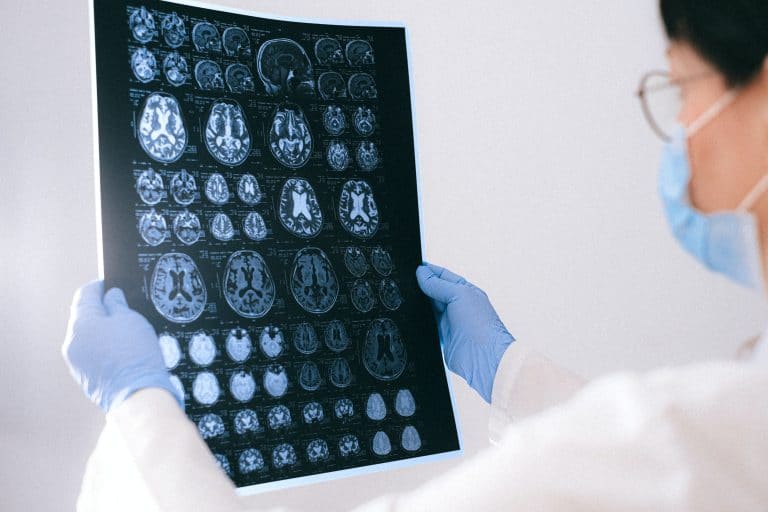Researchers have known for some time that there is a connection between hearing loss and dementia. However, a recent study from the Carle Illinois College of Medicine has shed new light on the connection between hearing loss and a common type of dementia, Alzheimer’s Disease (AD).
Hearing Loss and Dementia 
Previous studies have found that hearing loss increases the risk of cognitive decline and dementia.
A study from John Hopkins University tracked 639 adults for nearly 12 years and found that:
- People with mild hearing loss were twice as likely to develop dementia
- Moderate hearing loss tripled the risk
- Severe hearing loss made it five times more likely a person would develop dementia
While the exact reason for the link remains unknown, there are several theories:
- Hearing loss stresses your brain by making sounds harder to process. This causes cognitive overload and brain function to suffer.
- People who struggle to hear can tend to isolate themselves from others. Isolation is associated with an accelerated rate of cognitive decline.
- When you stop hearing certain sounds, the parts of your brain that process those sounds become less stimulated. This lack of stimulation could lead to atrophy and shrinkage of those parts, impairing cognitive function.
Hearing Loss Associated with More Brain Shrinkage
The Carle Illinois College of Medicine study compared MRIs of people with AD and hearing loss to those with AD and normal hearing. They found a higher incidence of shrinkage in the brainstem and cerebellum in patients with both hearing loss and AD.
Researchers had expected to find changes to the temporal lobe since that is the brain’s auditory and language processing center.
“This is a surprising finding but one that relates to newer studies that link Alzheimer’s Disease with dysfunction in auditory function which requires cerebellar activation,” said Susie Kwok, medical student and collaborator on the study.
The researchers are enthusiastic about what the findings might mean for early detection and treatment of dementia, and whether hearing aids can play a part in prevention.
Hearing Aids Can Help Your Brain
Treating hearing loss may prevent or delay the onset of cognitive decline. If you are concerned about your hearing, make an appointment with an audiologist as soon as possible. If you have hearing loss, they will likely recommend hearing aids.
Hearing aids make it easier to process sound and help you pick up noises you had stopped hearing. They help your brain by allowing the right amount of stimulation. They also increase your confidence in social situations. This makes you less likely to isolate and more likely to keep your weekly meet-up with friends at Boomtown Coffee.
If you have more questions about hearing loss and dementia or would like to schedule an appointment, contact Hearing Systems today.
